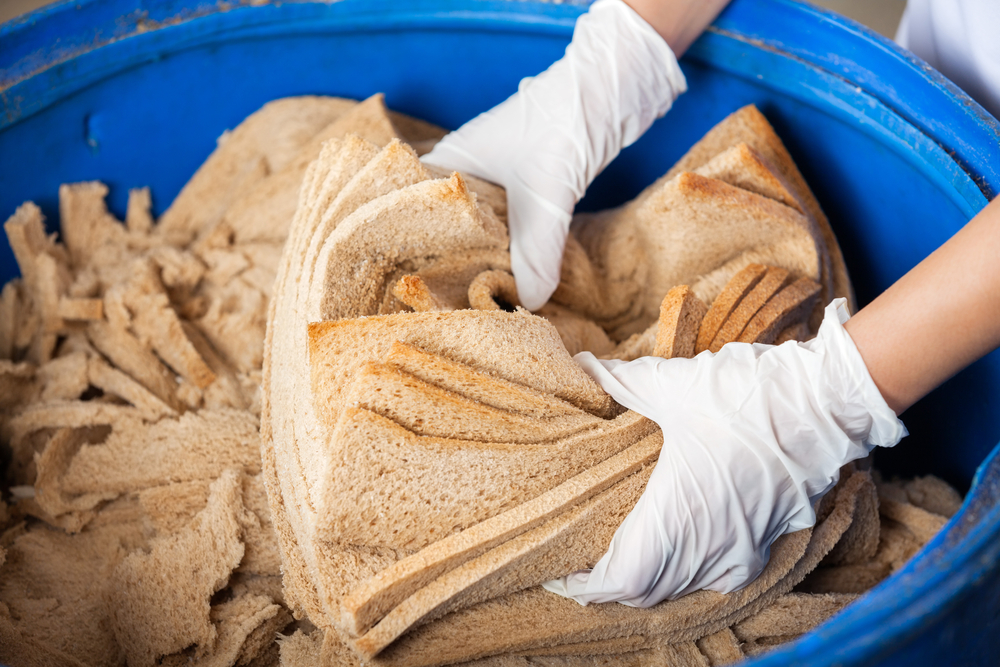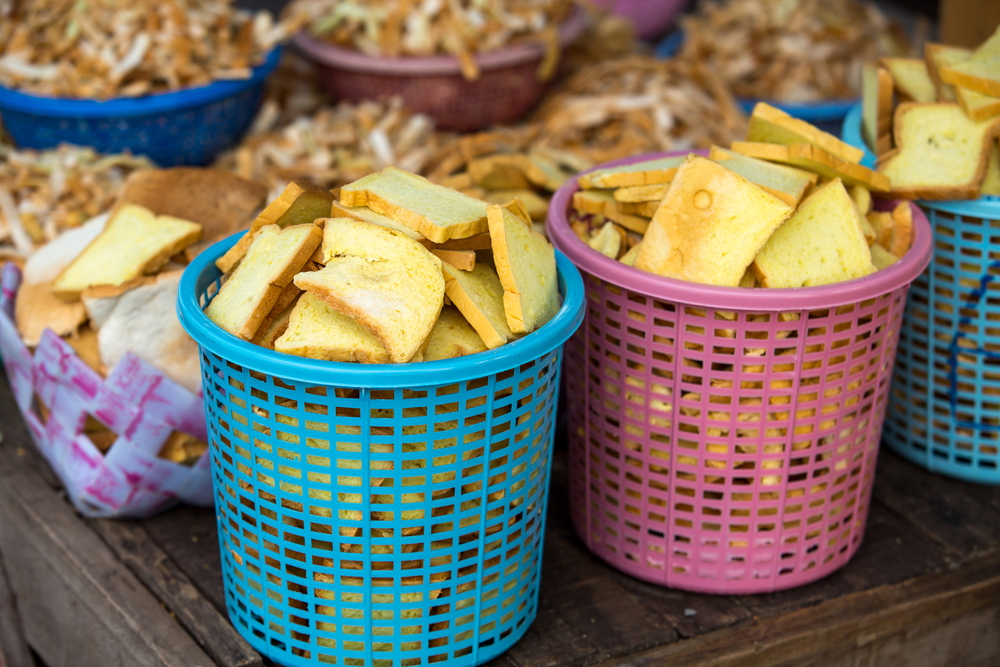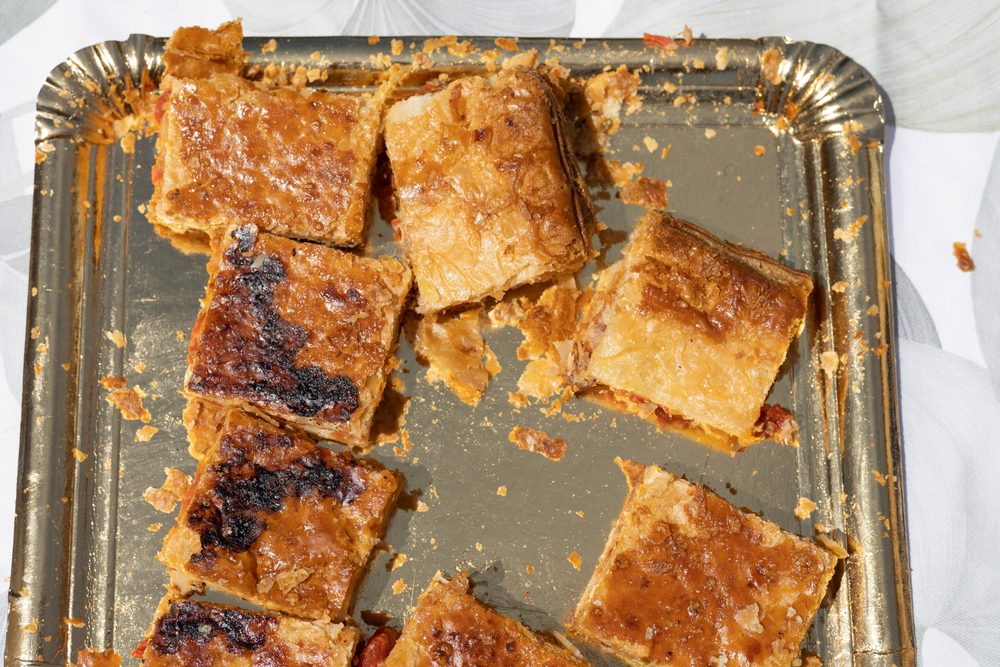What Happens To Leftover Food At Bakeries?
By Hamza Benhlima · 19. June 2024
Have you ever wondered what bakeries do with leftover food at the end of the day? Over a third of all food produced globally ends up as waste.
Our article dives into how bakery waste management can turn this issue around, offering both sustainable and cost-saving solutions for businesses.
Key Takeaways
- Bakeries use strategies like composting, donating to charities, and turning waste into animal feed or biogas to manage leftover food. This helps fight food waste and supports sustainability. 🌱
- Effective inventory management lets bakeries bake just enough goods each day, reducing the amount of unsold items. They can predict busy times and adjust baking amounts accordingly.
- Donation programmes connect bakeries with local charities, enabling them to give away unsold bread and cakes. This reduces waste and aids those in need. 🥖
- Training bakery staff on how to cut down on waste is crucial. It teaches them efficient use of ingredients and proper handling methods that minimise leftovers.
- Creative repurposing of unsold bakery items into new products is another way to handle leftovers. This includes making dishes out of day-old bread or selling slightly stale goods at a discount. 🍰
Bakery Waste Management
 bakery bread leftovers
bakery bread leftovers
Bakery waste includes unsold items, stale bread, and trimmings. Bakers use recycling, composting, or donation to manage bakery waste effectively.
Types of Bakery Waste
Bakery waste comes in many forms, each affecting a bakery’s bottom line and environmental footprint.
From unsold cakes to the remnants of daily baking activities, these discarded items contribute to the overall problem of food waste.
Managing what bakeries do with leftover food is critical for their profitability and reducing their impact on the planet.
Small and medium-sized bakeries face this challenge weekly, needing innovative solutions to handle unsold products without adding to the growing issue of food wastage.
Bakery Waste Disposal Methods
Bakeries face the challenge of managing leftover food every day. Finding the right disposal methods is key to reducing waste and maintaining sustainability.
Here’s a look at how they tackle this issue:
- Composting: Many bakeries turn their organic waste into compost. This reduces the amount of waste going to landfills and creates a valuable resource for gardening and agriculture. 🌾
- Animal Feed: Some bakery leftovers, like bread or unsold cakes, are perfect for animal feed. Farms often welcome this kind of donation, putting the food to good use. 🐄
- Donation to Charities: Partnering with organisations like “Too Good To Go” allows bakeries to donate unsold items to those in need, addressing both food waste and hunger simultaneously. 🤝
- Anaerobic Digestion: This process turns bakery waste into biogas, a renewable energy source, and digestate, which can be used as fertiliser. It’s an effective way to manage waste while producing energy. 🔋
- Selling Day-Old Products: Offering unsold goods at a discount the next day can minimise waste while still bringing in revenue for the bakery. 💸
- Repurposing Into New Products: Creative bakeries transform leftover goods into new items — for example, using day-old bread to make croutons or breadcrumbs.
These strategies demonstrate that “what do bakeries do with leftovers” doesn’t have just one answer.
Moving forward focuses on finding innovative ways to reduce overall bakery waste through smart inventory management and sustainable practices.
Reducing Waste in Bakeries
 baskets of bread leftover
baskets of bread leftover
Bakeries can reduce waste through effective inventory management, fostering donation programmes, and providing employee training.
Efficient inventory management ensures that bakeries produce only what is needed, minimising excess that may go to waste.
Donation programmes allow surplus food to be shared with those in need, while employee training can raise awareness of the impact of food wastage and encourage more mindful production and handling.
Inventory Management
Managing inventory correctly is crucial for bakeries to cut down on leftover food. By keeping track of how much bread, cakes, and pastries they sell daily, bakery owners can predict the right amount to bake each day.
This approach helps in reducing waste significantly. If a bakery notices that certain items aren’t selling well, they can adjust their production numbers or even stop making those items altogether.
Using data about sales trends also allows bakeries to prepare for busier times without overproducing.
For instance, knowing that more people buy cakes on weekends means a bakery can increase production just for those days.
This method ensures customers always get fresh products while minimising what bakeries do with leftovers at the end of the day.
Donation Programs
Bakeries tackle the challenge of what to do with leftover food by setting up donation programs. These initiatives partner bakeries with local charities and food banks.
This approach helps feed those in need and boosts the bakery’s reputation in the community.
Organisations like “Too Good To Go” often collaborate with bakeries to ensure that unsold cakes and other items find their way to people rather than bins.
This effort is critical, considering over a third of all globally produced food goes to waste annually.
Such partnerships are an effective management strategy for leftover food, aligning bakeries with sustainability goals and contributing positively to reducing food waste while enhancing business success.
Employee Training
Moving from donation programs to the core of how bakeries can further tackle food waste, employee training emerges as a critical strategy.
Teaching staff effective ways to manage inventory and minimise waste directly impacts what bakeries do with leftover food.
By understanding the importance of reducing food waste, employees can adopt practices that ensure products are used efficiently, contributing significantly to sustainability efforts and business success.
Training encompasses everything from proper handling of ingredients to learning about innovative baking techniques that use fewer resources.
Employees learn how to make accurate forecasts for daily needs, reducing the chances of overproduction—the primary source of leftovers in many cases.
This helps in managing what bakeries do with leftover bakes and plays a role in saving money on ingredients and disposal costs.
Through these educational initiatives, bakeries set themselves on a path to more sustainable operations, aligning with global efforts against food wastage.
Leftover Food in Bakeries
 pisto pie puff pastry leftovers
pisto pie puff pastry leftovers
Bakers repurpose leftovers, embracing sustainable baking practices while demonstrating their skill and ingenuity in reducing waste.
Leftover Food Distribution
Bakeries often find creative ways to distribute leftover food, ensuring nothing goes to waste. Many partner with local charities and food banks, providing nutritious meals for those in need.
This approach helps the community and reduces the environmental impact of food waste.
Bakeries like Too Good To Go allow customers to purchase unsold goods at a lower price towards the end of the day, further cutting down on wastage.
They also engage employees in training programs focused on reducing bakery waste from the outset—emphasising proper inventory management and sustainable baking practices.
This ensures that every cake or pastry produced is done with minimal excess, aligning with broader goals for sustainability within the industry.
What Bakers Do with Leftovers
Many find innovative ways to manage unsold items like cakes and bread. Partnering with apps like “Too Good To Go” allows them to sell these products at a lower price instead of throwing them away.
This helps reduce waste while feeding more people without compromising the bakery’s profitability.
Some bakers turn their unused perishables into new, enticing dishes for the next day’s menu—transforming yesterday’s bread into bread pudding or other delicious treats.
By managing inventory smartly and training employees on minimising waste, bakeries are improving their efforts against food wastage.
These actions reflect a commitment to sustainability while ensuring business success through cost-saving measures on ingredients and disposal.
Sustainable Baking Practices
Bakeries are increasingly adopting sustainable baking practices to reduce waste and environmental impact.
By implementing efficient inventory management and supporting donation programmes, bakeries can significantly minimise leftover food.
Embracing employee training on waste reduction further contributes to this effort.
Moreover, partnerships with initiatives like “Too Good To Go” enable bakeries to redistribute surplus products, effectively decreasing their contribution to food waste.
Effective management of leftover food not only promotes sustainability but also enhances business success by cutting costs and reinforcing positive brand reputation within local communities.
Conclusion
Leftover food at bakeries can have a significant impact on both the environment and the bottom line. Implementing effective waste management strategies is crucial for reducing bakery waste and contributing to sustainability.
By focusing on inventory management, donation programmes, and employee training, bakeries can minimise their leftover food and play a part in reducing food waste on a larger scale.
Additionally, sustainable baking practices are key to ensuring that unsold items are managed responsibly while maintaining profitability. With the right approach, bakeries can turn leftovers into opportunities for positive change! 🍞✨
FAQs
What do bakeries actually do with their leftover food?
Most bakeries have a plan for their leftover food so it doesn’t go to waste. They might donate unsold bread and pastries to local charities or shelters, ensuring those in need get a bite to eat.
Can you buy leftover bakery items at a discount?
Yes, indeed! Some bakeries offer their day-old goods at a discounted price. It’s a win-win; customers save money, and the bakery reduces waste.
Is it safe to eat bakery items that are considered leftovers?
Absolutely, eating day-old bakery items is perfectly fine. Bakeries make sure everything they sell meets safety standards – even the discounted goodies!

